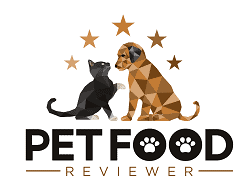What Is Montmorillonite Clay?
Montmorillonite Clay is a component of volcanic ash known as Betonite and can also be known as Bentonite Clay or Calcium Bentonite Clay.
The name Montmorillonite comes from the town of Montmorillon in France, where it was first discovered in the 1800s.
Montmorillonite Clay has been used for centuries for several purposes, including to treat skin, remedy acne, and ease several digestive issues.
However, in modern times, it is now a component of several manufactured products for humans like shampoo, face masks, and toothpaste.
However, over the last decade, Montmorillonite Clay has started to feature in select pet food recipes, and many pet owners who read the ingredient list of their pet’s food wonder why it is present.
While it may be far down the ingredient list and only present in a tiny quantity, some pet owners still want to ensure it is appropriate for the diet of their pet.
Why Is Montmorillonite Clay In Pet Food?
One of the purposes of Montmorillonite Clay in pet food recipes is as an anti-caking agent. While most pet owners won’t be familiar with that terminology, it translates to preventing clumping and excess moisture in the pet food.
Pet owners expect their pet’s food to have a uniform and consistent texture, and while there are alternative ingredients that can be used for this purpose, Montmorillonite Clay is one popular option.
Montmorillonite Clay’s primary advantage over alternative options is that it is considered a natural ingredient and is not man-made. In contrast, most other anti-caking agents are manufactured chemicals such as Silicon Dioxide and Calcium Silicate.
The second purpose or benefit of including Montmorillonite Clay in pet food recipes is that it can be a source of beneficial minerals.
While the exact number differs based on your source, Montmorillonite Clay can be a source of several minerals, including Calcium, Iron, Magnesium, Potassium, and Manganese.
Moreover, the minerals that are present in Montmorillonite Clay are in their natural form, which some believe means they are more easily absorbed by a pet’s digestive system.
We will also highlight that some also claim that Montmorillonite Clay can have other health benefits for pets as it can act as a detoxifying agent.
This means that it can attract and bind with bodily waste products and toxins, helping them to be eliminated from the body.
Lastly, Montmorillonite Clay has been utilized and prescribed by some Veterinarians to treat Diarrhea, specifically Diarrhea caused by cancer treatments.
While this is a very niche use, it is still a powerful one, and the fact that Montmorillonite Clay is a natural source can be beneficial, as many other treatments come with the risk of side effects.
Pet Food Brands That Use Montmorillonite Clay
Unlike some other minor ingredients used in pet food, there are a fairly limited number of pet food brands that use Montmorillonite Clay in their pet food recipes.
Some examples of pet food brands that you may have heard of that use Montmorillonite Clay include Nature’s Logic, Nature’s Variety Instinct, and Wysong.
You can see an example below of the use of Montmorillonite Clay in a dog food recipe in the ingredient list Nature’s Logic Beef Meal Feast recipe.
As you can see, Montmorillonite Clay is present as a minor ingredient in this recipe and is present in similar quantities to others like Alfalfa and Dried Kelp.
Nature’s Logic is one of the few brands to give more insight into why it uses Montmorillonite Clay. They stated that their clay was sourced from Redmond Minerals in Redmond, Utah.
One of the reasons that Nature’s Logic uses the ingredient is that they are a pet food brand that includes no added synthetic vitamins and minerals in their recipes.
By not using any synthetic sources, they instead have to rely on natural alternatives, and as we discussed earlier, Montmorillonite Clay is an option to provide several minerals.
Lastly, while some pet owners may be on the fence about feeding their pet’s food recipe that includes Montmorillonite Clay, we want to reiterate that the portions used by most pet food brands are tiny, and it is not a major component of the food.





hi james
my name is eamon i have a labrador x(mollie) she is 13/14 years old ifeed her a german brand of food called(wolf of wilderness) i read your article on montmorillonite as i am in ireland any ideas on how i can get my hands on that stuff
kind regards
eamon e